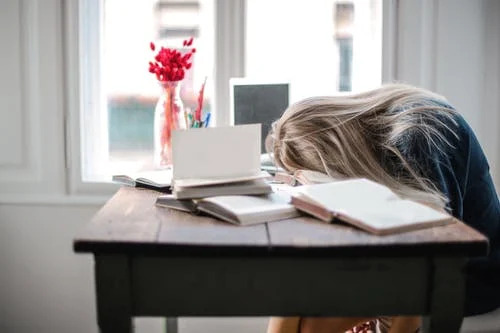Author: Katherine Young, mindhamok wellness coach
You likely know the sleep science and how critical sleeping well for 7-9 hours a night is for your health, well-being and brain development. You also likely know that utting that into practice can sometimes be a bit more challenging.
Take a moment to consider your sleep routine:
- How many hours do you sleep each night?
- What routine/ritual do you follow to tell your body and mind that it is time for sleep?
- What have you noticed impacts your sleep, either supporting it or getting in the way?
- What’s the difference between a day when you feel rested and one where you are tired?
If you have more sleepless nights than not, stayed tuned. Below are some resources, as well as motivation in the form of highlighting sleep’s significance.
In The Science of Well-Being, the most popular course ever offered at Yale University, Dr. Laurie Santos identifies that sleep is critical to supporting well-being and happiness. “One of the reasons we’re so unhappy in our modern lives is that we’re consistently sleep deprived. Research shows that sleep can improve your mood more than we often expect.”
By the way, if you want to actually take Dr. Santos’ course, it’s offered free on coursera
Dr. Santos provides a taste of what happens when you are regularly not getting enough sleep (aka sleep deprived). It makes you more likely to feel emotional/reactive; it leaves you less focused, hungrier and wanting to eat more. Too little sleep contributes to a weakened immune system, and brain tissue loss. Conversely, if you are getting the sleep you need, your mood improves, you gain a greater sense of well-being, and it helps your academic and cognitive performance while benefiting your ability to be creative and have insights.
What constitutes good sleep hygiene? We know that it’s crucial to put technology away some time before you try to sleep and as much as possible aim to sleep and wake around the same time. A routine or pattern that works to downregulate you from the day signals your body to rest. It might include taking a shower/bath, listening to music, reading for pleasure, having a cup of tea, putting on comfy sleep clothes, making sure your bed is comfortable and your room is dark. Some find breathing exercises and/or evening relaxations to be a helpful part of this routine. See our Sleep Tip Sheet for some to try.
What is one step you might take to support your getting good rest more times than not each week?
Don’t hesitate to reach out if you have questions or need more information. We here at mindhamok are with you on your journey, supporting you as you cultivate your own unique “hamok” of well-being and growth.



